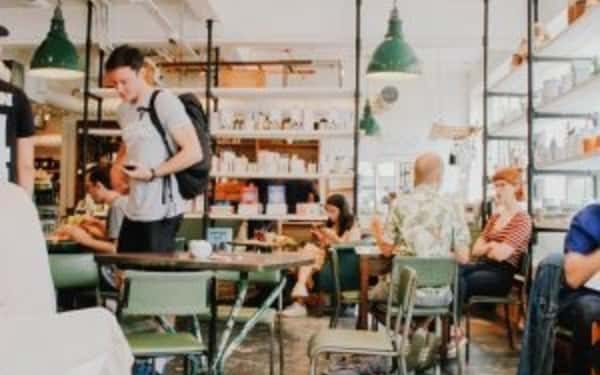A new app being developed by Bristol University students will allow office, school or university canteen diners to weigh up the environmental impact of each dish on a menu, before ordering it.
Thanks to funding from the Aspect Accelerator Programme received in October, the founders are preparing a pilot, to launch at the University of Bristol this year.
Innovation students Sophie Elliott, Kesta Kemp and Edward Stratton developed their app, KnoWaste, to combat waste and the broader environmental impact of hospitality and catering.
Users choose their meals through the app in advance, perhaps at the start of each week, allowing catering teams to order and prepare food more precisely.
Gamification in the app encourages groups to compete to reduce the environmental impact of their choices, setting weekly, or monthly, targets.
KnoWaste is aiming to be available in every UK catered university in the next five years. They will also seek to scale up for hospital and office canteens.
“Food waste costs an average university £100,000 a year”
Sophie Elliott says, “I study psychology, and there’s lots of research around how comparing behaviour with others makes you want to improve.”
The app is also designed to educate users so they address food waste beyond university halls.
Kesta Kemp says being able to visualise the carbon and water impact of choices plays into the same logic as counting calories before making a meal choice. Carbon usage is expressed in miles and water in pints, in the app.
The students were inspired when they noticed waste first-hand – as students in dining halls and also while working in catering. Food waste not only damages the environment unnecessarily, but it’s expensive, they point out.
Kesta Kemp says, “An average university, with five catered halls, loses £100,000 per year on food waste.”
It’s been a major selling point. “Our main pitch to universities is that we’re not just saving you the carbon and the water on the sustainability side, we’re also saving you a lot of money,” says Sophie Elliott.
Currently, the founders are building a minimum viable product and applying for competitions and grants.
Sophie Elliott adds, “Covid has helped us realise that the really valuable part of our business is the data – capturing the number of people coming to each meal, each night, and what they want.”
This data is vital in helping to regulate and monitor dining attendance, maintain social distancing and support track and trace efforts.
You can contact the team at knowaste.info@gmail.com.























